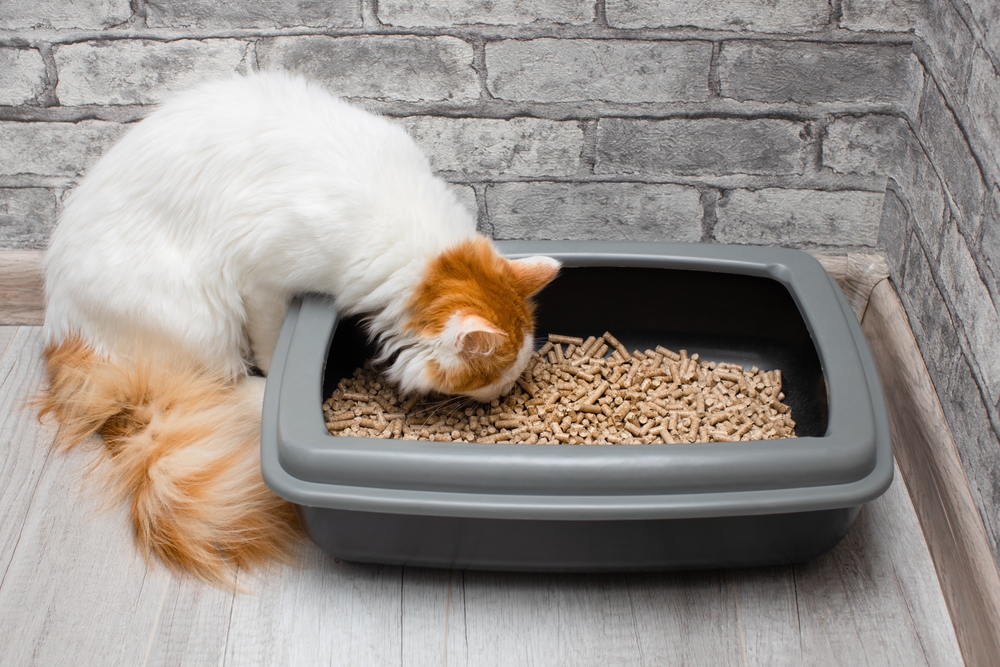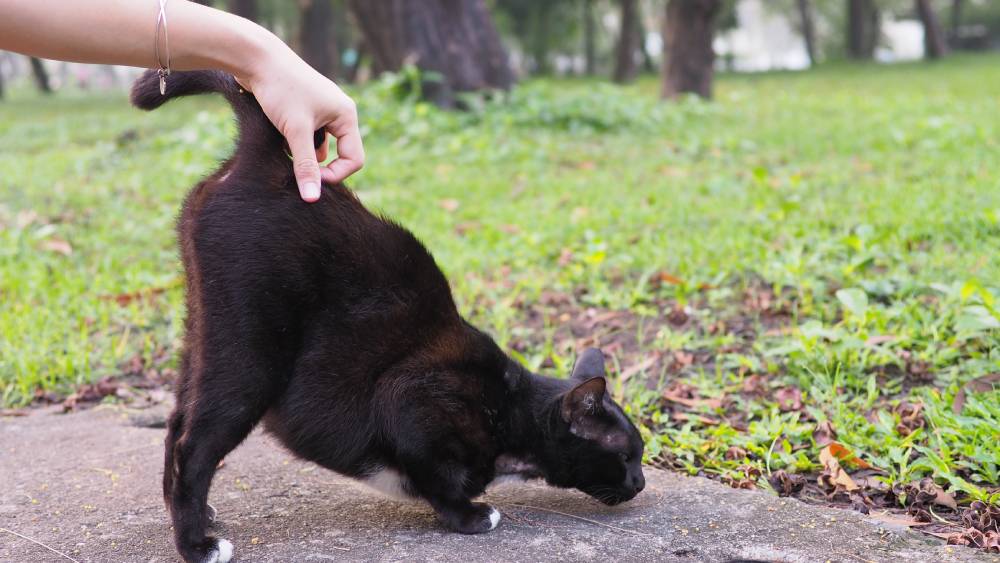If you have a cat but are considering adding chickens to your household, you’re likely pondering the wisdom of that move. After all, cats are predators, so surely, they would attack the chickens or try to eat them. Right?
Actually, no, or at least not for the most part. Unless a cat is starving (actually starving, not just “I haven’t been fed in 2 hours” starving), it’s very unlikely they will attack an adult chicken. Cats are aware that chickens are large and come with claws and beaks that can be quite painful, so they usually avoid any run-ins! However, other than hunger, the reason a feline might attack a chicken would be in self-defense.
But it’s a different matter with baby chicks. Baby chicks can make tasty little snacks in between meals for our kitty friends. Even if your cat isn’t attacking a baby chick for food but is instead trying to play with it, there’s still a good chance that their predatory instincts will kick in and your kitty will kill the chick.
So, cats will rarely attack adult chickens (though it’s always a possibility), but it’s wise to keep them far away from baby chicks.
Can Cats and Chickens Coexist?
Felines and adult chickens can coexist. But until your chickens reach full maturity, it’s best to keep them in a separate, secured area far away from your cats. You’ll also want to ensure young chicks only roam in an enclosure or with supervision.
Once fully grown, though, your cats will likely have very little interest in your chickens. It will be helpful if you introduce your cat to any chickens when your kitty is young, though, so they can become properly socialized with the birds. Once used to their new feathered friends, your feline will be even less likely to want to attack them.
You can also help keep your pet from being tempted into trying to fight with your chickens by ensuring that they have plenty to eat so they don’t become ravenous enough to want to go up against the birds. It’s also smart not to leave food near your chicken coops or enclosures, as that will tempt not only your cat to that area but also wild animals.
Of course, the best way to ensure your chickens are always safe is by having them in an area your feline isn’t allowed into, just on the off-chance kitty decides to attack.
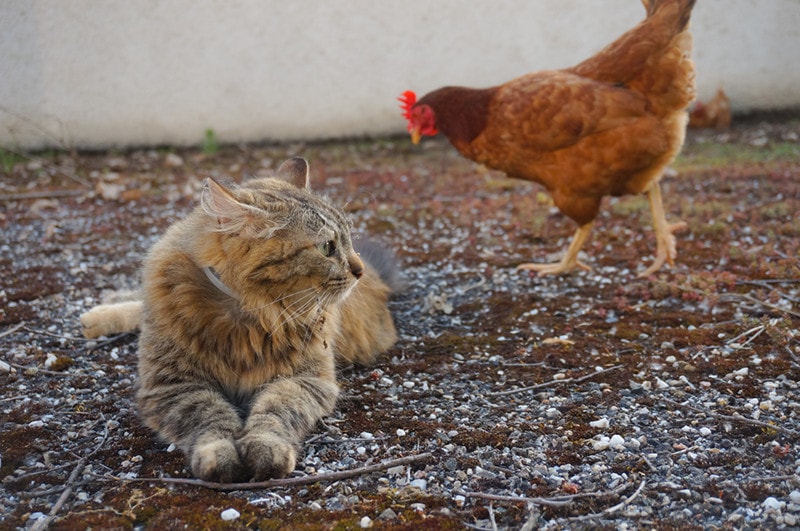
Benefits of Cats and Chickens Coexisting
Not only is it nice for you when all your animals get along, but there are also a couple of benefits to your cat and chickens coexisting peacefully.
First, having a feline prowling around means you’ll have less of a rodent population (mice and rodents will try to go after your chickens’ feed). Having fewer rodents around means a lower chance of snakes coming around looking for a meal, which equals more safety for your chickens.
Next, cats being around your chickens may help deter wild birds from hanging about. The more wild birds around your chickens, the higher the chance they could catch a disease or get mites. If you have a feline chasing away the wild birds, though, it’s much less likely your chickens will catch anything.
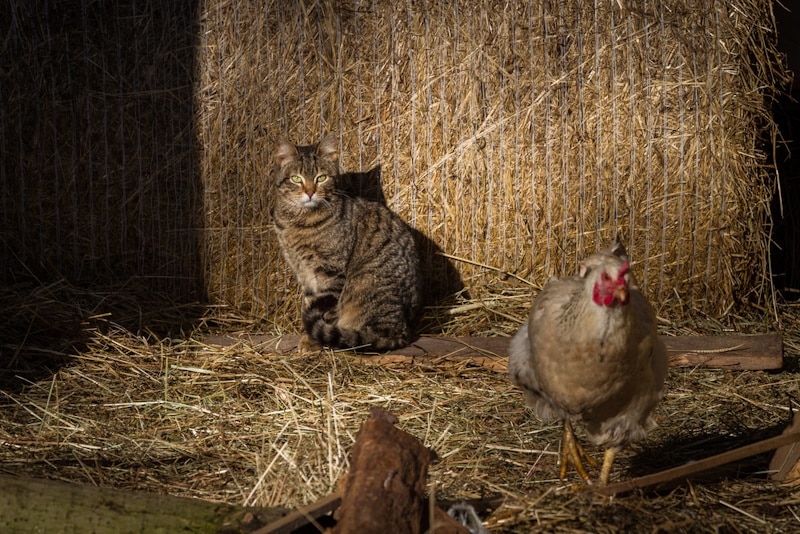
One More Thing to Know
There is one more vital thing you should know about cats and chickens being around each other: Your chickens can make your kitty sick. Chickens sometimes carry Salmonella, which can then be passed on to your feline. Likewise, your cat could transmit the infection to your chickens, and humans are also susceptible to this zoonotic disease. While your cat may show no signs of having Salmonella, they could still end up with medical issues, such as:
- Vomiting
- Diarrhea
- Loss of appetite
- Fever
- Dehydration
- Elevated heart rate
- Lethargy
- Sepsis (in severe cases)
So, this is something to watch for if you have the two species in your home hanging out together.
If you’re concerned about your cat’s health we suggest you speak to a vet.

If you need to speak with a vet but can’t get to one, head over to PangoVet. It’s an online service where you can talk to a vet online and get the personalized advice you need for your pet — all at an affordable price!
 Final Thoughts
Final Thoughts
You’d think our feline friends would be more than eager to attack chickens, but this is rarely the case when it comes to adult chickens. However, baby chicks are entirely too tempting to our cats, as they make tasty snacks and fun playthings, so keep the two apart while your chicks are growing up. Cats and adult chickens should be fine together for the most part, with likely little interest in each other, but you can keep your chickens in an enclosed area to be on the safe side if you prefer.
Although there are benefits of cats and chickens being friendly with each other, there’s also a downside, as your chicken could pass along Salmonella to your cat or to you. Just be careful, and practice hygienic methods when having these two animals together!
Featured Image Credit: Yuriy Kulik, Shutterstock

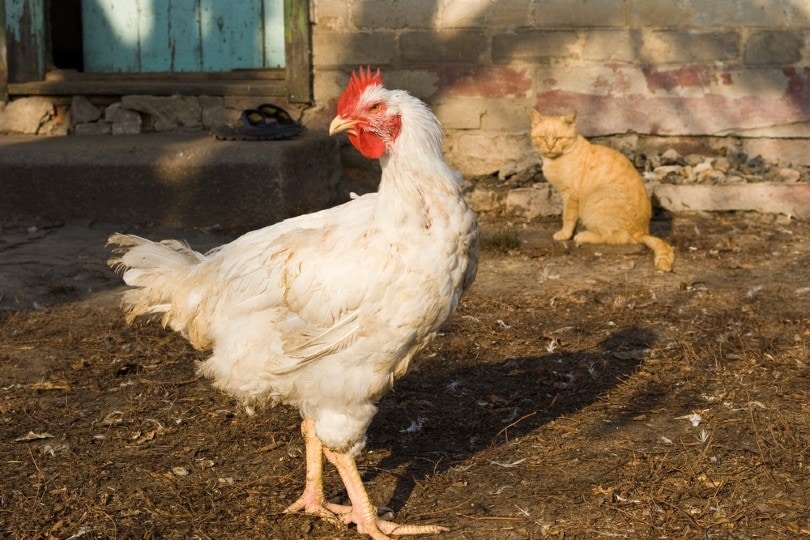
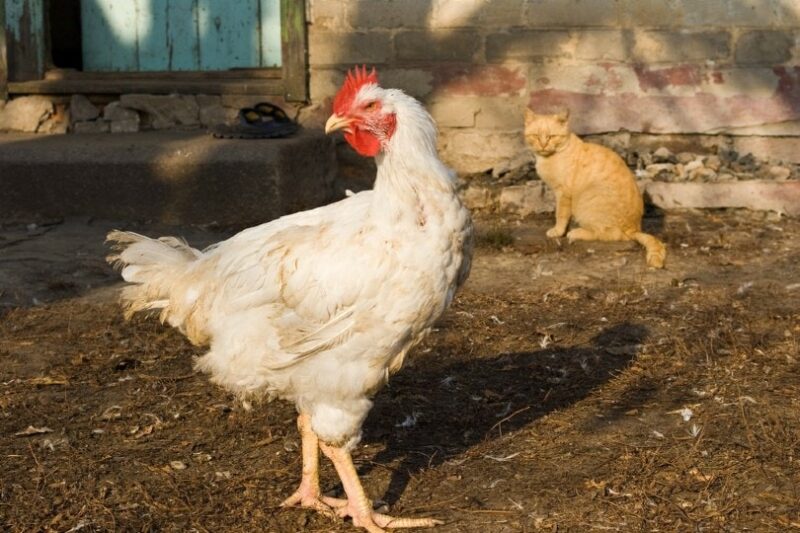

 Final Thoughts
Final Thoughts
